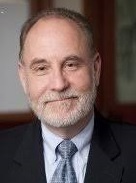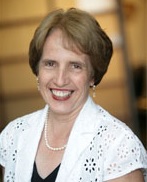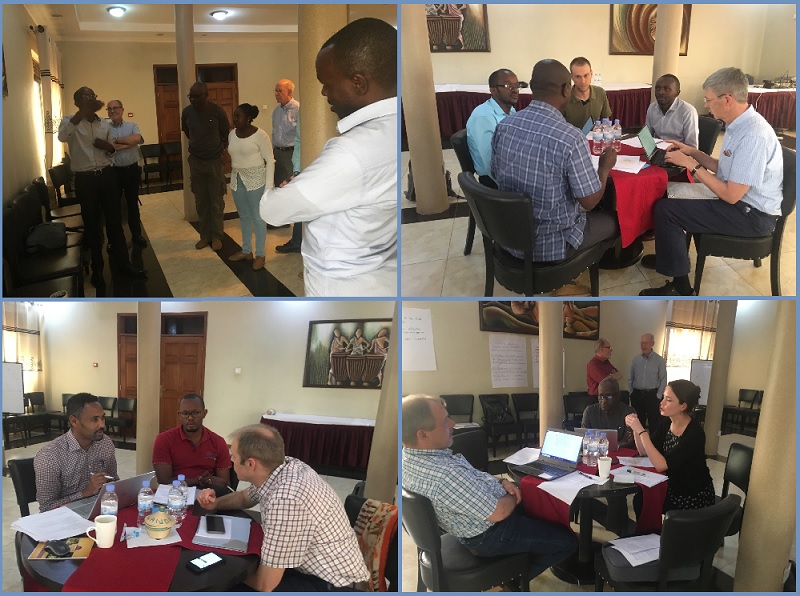International EEA, or I-EEA
What is the I-EEA?
In response to requests from international institutions, SEE, a recognized leader in domestic experiential education training, has developed the International Experiential Education Academy to work across the globe with schools that value the learning outcomes of experiential education and would like to incorporate this model into their curricula.
What makes this program unique is the attention to cultural and social differences in each country. The I-EEA faculty work closely with international partners to understand their culture, the environment, the goals, and their unique needs. Thus the I-EEA faculty can then tailor sessions to the specific needs of each school and program.
The International Experiential Education Academy consists of a 4-day intensive immersion in the theory and practice of experiential education offered in an adult centered, active engagement model. Faculty are experienced teachers and scholars in the field who share their knowledge and experience through engaging hand-on sessions designed for both faculty and administrators.
What Does the Program Involve?
The four-day program consists of the following modules:
- The Role of Cognition in Adult Learning - This session involves understanding the science of learning and its particular application to the adult student population. Through presentations and activities, participants will understand how to establish an environment conducive to learning. Together participants explore learning theory, adult learning theory, and active learning strategies.
- Introduction to Experiential Education - This session discusses the fundamentals, principles and best practices related to experiential education. Through discussion and activity, participants begin to explore how the principles apply to their particular circumstances and environment. The Kolb Learning Cycle is introduced, becoming the basis from which participants begin to understand the depth of learning that can occur through experiential education.
- Reflection - What makes experiential education unique and effective is the role reflection plays in the learning process. Faculty will explore the power of reflection, learn various discipline models of reflection, and apply this tool to both their classrooms and the experiential activity.
- Assessment of Experiential Education - One of the outcomes of experiential education is often unintended consequences of student activities in the field. Through a simple assessment model, participants will learn how to assess student’s readiness for the experiential activity, tools to measure learning throughout the experience, and how to document the learning after the experience.
- Strategic Planning - This session will outline for administrators and faculty how to prepare for experiential education, how to engage faculty in the process, what types of experiential education might be appropriate for individual countries, budgeting and program level assessment.
Additional Modules will be developed as the need arises from international institutional partners.
Who we are
 Dr. Ronald Kovach has served as both a chief academic affair and as a chief student affairs officers throughout his 35-year career. He has conducted numerous presentations on experiential learning at international and national conferences, taught in a variety of academic disciplines, and has publications on experiential education and student retention. While in the Purdue system, Dr. Kovach was awarded a $1.75 million grant from the United States Department of Education for experiential learning. For eight years, Ron served on the Board of Directors of the National Society for Experiential Education (NSEE) as President, Treasurer, Past President, and Director of the Experiential Education Academy. In 2017 he was awarded the Society’s Steuerman Award for Distinguished Service. Dr. Ronald Kovach has served as both a chief academic affair and as a chief student affairs officers throughout his 35-year career. He has conducted numerous presentations on experiential learning at international and national conferences, taught in a variety of academic disciplines, and has publications on experiential education and student retention. While in the Purdue system, Dr. Kovach was awarded a $1.75 million grant from the United States Department of Education for experiential learning. For eight years, Ron served on the Board of Directors of the National Society for Experiential Education (NSEE) as President, Treasurer, Past President, and Director of the Experiential Education Academy. In 2017 he was awarded the Society’s Steuerman Award for Distinguished Service.
 Donna Qualters, PhD is an internationally known faculty developer and author of the book Experiential Education: Making the Most of Learning Outside the Classroom. She is a faculty member of the Experiential Education Academy of the National Society for Experiential Education and an associate professor at Tufts University. Dr. Qualters has been involved in faculty development at MIT, Northeastern University, University of Massachusetts Medical School, Suffolk University and most recently at Tufts University, She has conducted faculty development workshops in Indonesia, Thailand, Vietnam, Malaysia, Tanzania, Rwanda, Australia, Sweden, England and Canada. Donna Qualters, PhD is an internationally known faculty developer and author of the book Experiential Education: Making the Most of Learning Outside the Classroom. She is a faculty member of the Experiential Education Academy of the National Society for Experiential Education and an associate professor at Tufts University. Dr. Qualters has been involved in faculty development at MIT, Northeastern University, University of Massachusetts Medical School, Suffolk University and most recently at Tufts University, She has conducted faculty development workshops in Indonesia, Thailand, Vietnam, Malaysia, Tanzania, Rwanda, Australia, Sweden, England and Canada.
Feedback from participants
Faculty who have participated in the I-EEA have told us:
So much has changed since you left, but we've taken the workshop to heart. The Practical Farming series is underway and each of the "lecture" classes are embracing active and experiential learning components. I've taken a project-based approach to my Communications class and students will pitch their pieces to the RICA communications department!
I am writing you this email to thank you for (the reflection tool). I came to knowing it, thanks to you, and I like it. I am journaling everyday, which is something I have never done before.
Pictures from the RICA visit (Rwandan Institute of Conservation Agriculture)

For more information or to schedule a consultation contact Dr. Ronald Kovach: [email protected]
|





 Dr. Ronald Kovach has served as both a chief academic affair and as a chief student affairs officers throughout his 35-year career. He has conducted numerous presentations on experiential learning at international and national conferences, taught in a variety of academic disciplines, and has publications on experiential education and student retention. While in the Purdue system, Dr. Kovach was awarded a $1.75 million grant from the United States Department of Education for experiential learning. For eight years, Ron served on the Board of Directors of the National Society for Experiential Education (NSEE) as President, Treasurer, Past President, and Director of the Experiential Education Academy. In 2017 he was awarded the Society’s Steuerman Award for Distinguished Service.
Dr. Ronald Kovach has served as both a chief academic affair and as a chief student affairs officers throughout his 35-year career. He has conducted numerous presentations on experiential learning at international and national conferences, taught in a variety of academic disciplines, and has publications on experiential education and student retention. While in the Purdue system, Dr. Kovach was awarded a $1.75 million grant from the United States Department of Education for experiential learning. For eight years, Ron served on the Board of Directors of the National Society for Experiential Education (NSEE) as President, Treasurer, Past President, and Director of the Experiential Education Academy. In 2017 he was awarded the Society’s Steuerman Award for Distinguished Service.  Donna Qualters, PhD is an internationally known faculty developer and author of the book Experiential Education: Making the Most of Learning Outside the Classroom. She is a faculty member of the Experiential Education Academy of the National Society for Experiential Education and an associate professor at Tufts University. Dr. Qualters has been involved in faculty development at MIT, Northeastern University, University of Massachusetts Medical School, Suffolk University and most recently at Tufts University, She has conducted faculty development workshops in Indonesia, Thailand, Vietnam, Malaysia, Tanzania, Rwanda, Australia, Sweden, England and Canada.
Donna Qualters, PhD is an internationally known faculty developer and author of the book Experiential Education: Making the Most of Learning Outside the Classroom. She is a faculty member of the Experiential Education Academy of the National Society for Experiential Education and an associate professor at Tufts University. Dr. Qualters has been involved in faculty development at MIT, Northeastern University, University of Massachusetts Medical School, Suffolk University and most recently at Tufts University, She has conducted faculty development workshops in Indonesia, Thailand, Vietnam, Malaysia, Tanzania, Rwanda, Australia, Sweden, England and Canada. 
